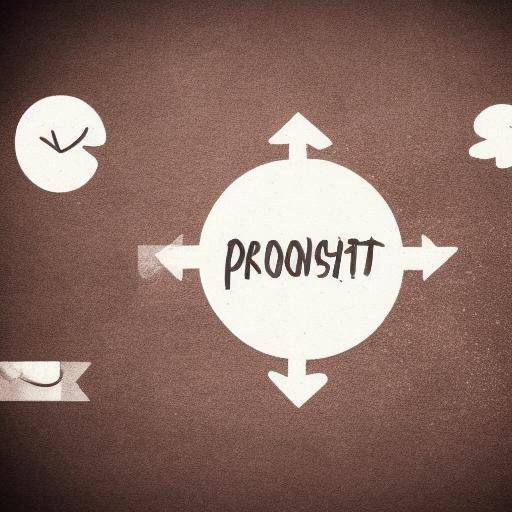
Introduction
In the modern working world, conflict reduction and the improvement of the working environment are key aspects of ensuring the productivity and well-being of the working teams. In this regard, meditation has emerged as an effective tool to address these challenges in a comprehensive manner. In this article, we will explore the impact of meditation on conflict reduction and its influence on improving the working environment. We will discover how this millennial practice not only benefits the mental and emotional health of workers, but also contributes positively to productivity and harmony in the working environment.
History and Background
Meditation, an ancestral practice primarily associated with Eastern spiritual traditions, has traveled a long way from its origins to its adoption in contemporary working environments. Its roots go back to millennia, with evidence of its practice in civilizations such as Indian, Chinese, and other Eastern cultures. Throughout history, various spiritual philosophies and currents have embraced meditation as a means of achieving mental clarity, inner peace and connection with being.
In modern times, meditation has experienced significant expansion, as it transcends the boundaries of the spiritual and enters the scientific sphere. Scientific studies have supported their health and well-being benefits, which has contributed to their widespread acceptance in today's society.
Detailed Analysis
Meditation has the potential to significantly reduce conflicts in the working environment by fostering self-reflection, empathy and emotional management. By practicing meditation, individuals can develop a greater awareness of their own emotions and responses to conflicting situations, allowing them to address the challenges more calmly and constructively.
In addition, meditation promotes improved communication and conflict resolution by strengthening active listening capacity and empatic understanding. These skills are essential to effectively manage conflict situations in the working environment and foster healthy and constructive working relationships.
Comprehensive review
The application of labour-based meditation has proved to be beneficial in various industries and labour contexts. Leading companies around the world have implemented meditation programs for their employees, observing significant improvements in productivity, creativity and job satisfaction.
Some studies have revealed that employees who practice meditation experience a reduction in levels of stress and anxiety, resulting in increased concentration, mental clarity and more successful decision-making. These indirect benefits contribute to conflict reduction and improved working environment as a whole.
Comparative analysis
By comparing conflict reduction, meditation and productivity, it is clear that meditation acts as a catalyst to achieve greater harmony and effectiveness in the working environment. Unlike other conflict reduction strategies, meditation addresses the roots of conflict at the individual level, promoting internal changes that have a positive impact on the collective working environment.
Practical Tips and Accessible Recommendations
If you are interested in implementing meditation in your working environment, consider the following:
- It offers guided meditation sessions in the company.
- It promotes the integration of meditation into labour culture.
- It provides resources for employees to practice meditation independently.
Perceptions of Industry and Expert Reviews
According to multiple studies, experts in human resources and business leaders, meditation is a valuable tool for reducing conflicts and improving the working environment. Its impact transcends the individual sphere, significantly affecting the collective dynamics of the work teams. The implementation of meditation programs in companies and organizations has proven to be an effective strategy to promote employee productivity and emotional well-being.
Case Studies and Real Life Applications
A notable example is the Google company, which has integrated meditation programs into its business culture. These programmes have contributed to reducing labour stress, improving employee concentration and fostering a more balanced and harmonious working atmosphere.
Future Trends and Predictions
As awareness of the importance of emotional well-being in the working environment continues to grow, meditation is expected to play an even more relevant role in conflict management and the promotion of a positive working environment. The integration of meditation practices into human resources strategies and organizational culture will become a fundamental trend for companies seeking to promote the productivity and labour satisfaction of their employees.
Conclusion
In conclusion, meditation has a significant impact on reducing conflicts and improving the working environment. Its benefits are not only reflected in the emotional health of individuals, but also contribute to fostering healthier working relationships, a more harmonious working environment and increased productivity in the workplace.
Frequently asked questions (FAQs)
How can meditation contribute to conflict reduction at work?
Meditation promotes self-consciousness, emotional management and empathy, which helps individuals to address conflicts more calmly and constructively, reducing the escalation of tensions.
What concrete benefits can meditation offer in the working environment?
Benefits include reducing stress, improving concentration, making more successful decisions and promoting healthy working relationships.
How can I implement meditation programs in my company?
You can start by offering guided meditation sessions, providing resources for individual practice and fostering a culture that values the emotional well-being of employees.
Is meditation suitable for all types of work environments?
Yes, meditation can be adapted to various working environments, regardless of industry or company size.
Can meditation improve employee productivity?
Yes, many studies have shown that meditation contributes to greater productivity by reducing stress, improving concentration and promoting mental clarity.
What role can meditation play in promoting a positive working environment?
Meditation can foster healthier working relationships, reduce conflicts and promote an organizational culture that values the emotional well-being of employees.
With this, we hope to have provided a comprehensive view on the impact of meditation on conflict reduction and the improvement of the working environment, as well as the benefits that it can bring to productivity and well-being in the modern working world.






















































